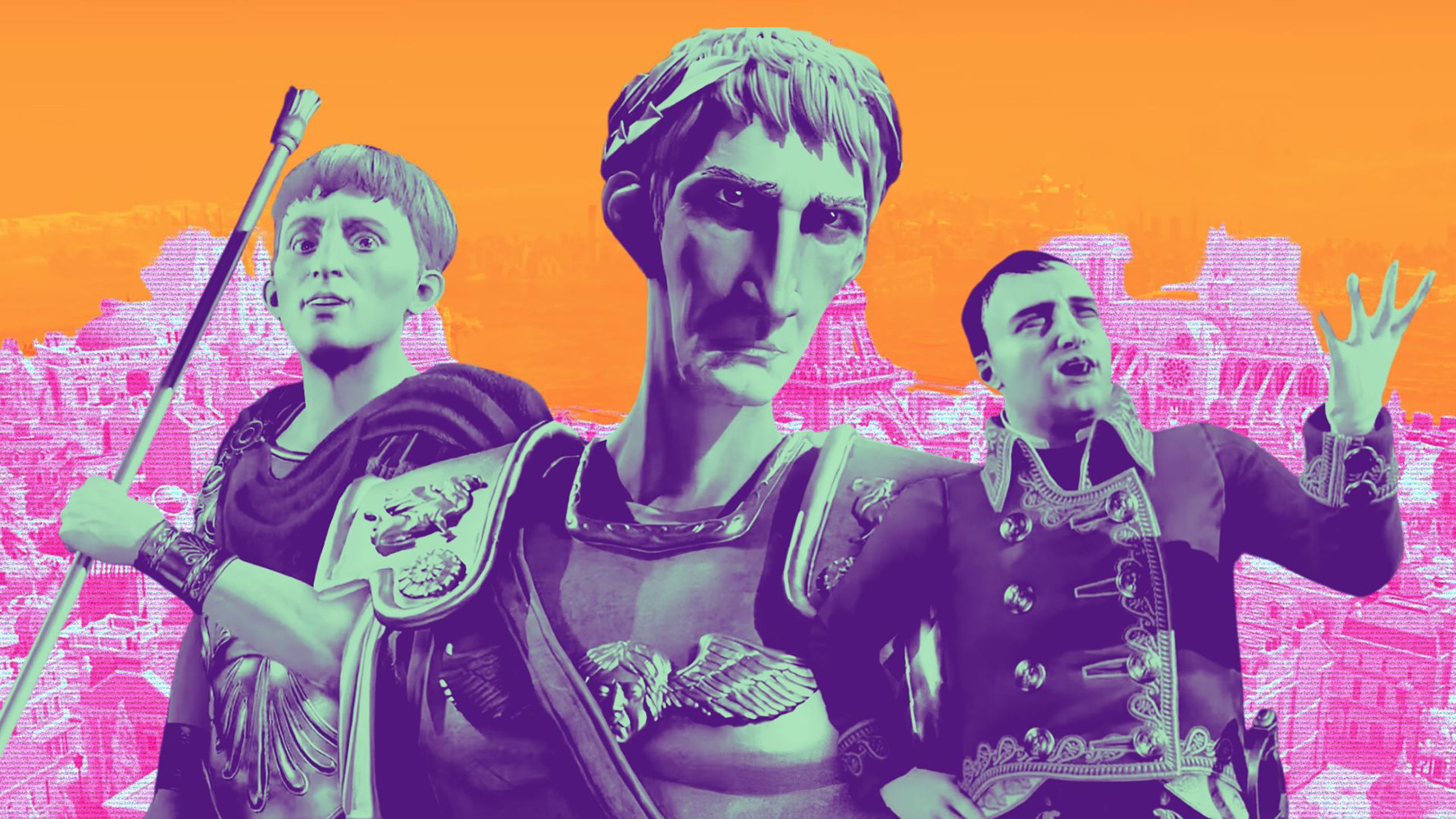
Key Takeaways
- Civilization VII introduces mid-game civilization switching and leader skill trees, creating a fresh gameplay experience.
- Civilization VII’s changes aim to solve the series’ endgame tedium issue and increase replay value.
- Civilization’s competitor, Humankind, shows that these new features don’t always translate into success.
Civilization is the North Star of 4X Strategy games Since the original Sid Meier’s Civilization was first released On PC In 1991, it laid the foundations for the entire strategy genre game With Sid Meier’s Civilization VII set to release on February 11th, 2025, that isn’t likely to change anytime soon.
I’ve played more Civilization than any other game. Between Civilization V and VI on Steam, I’ve put in over 3,000 hours. If you’ve played the game, you know how quickly time flies by. You’ll play a few more turns and plan to go to bed at a convenient time, only to suddenly find yourself being ambushed by the Romans and it’s 2am.
My excitement for this new game has been at an all-time high ever since the gameplay was revealed, and the new feature of being able to sail the river in a boat is enough to make me buy Civilization VII on launch day, but that’s not all.
The addition of Gwendoline Christie as narrator is a real treat; she comes from a long line of Game of Thrones actors who have previously narrated the game, including Sean Bean and Peter Dinklage. But that doesn’t mean we don’t have some reservations. It’s clear that Firaxis is planning for Civilization VII to be a big turning point for the series, but hopefully the introduction of new gameplay elements will help Civilization VII avoid some of the issues that plagued both V and VI.
Is Civilization VII better than Civ VI right from the get-go?
Previous Civ games were released unfinished
When Civilization VI was first released in 2016, I was excited to play it, but as is the trend with Civilization games shortly after release, I found it to be quite a disappointment. New Civ games usually don’t overtake their predecessors until a DLC expansion is released, and for years after the sixth game was released, I played Civilization V more than the newer games.
Firaxis appears to be completely changing up some gameplay elements in this new installment, so it will feel like a different experience, even if it’s not great.
There’s still a healthy debate among fans, but I think Civilization VI is better. What changed things for me were the two major expansion DLCs released with Civilization VI: Rise and Fall and Gathering Storm. The same thing happened with Civilization V. Civilization V became a much different and better game after the release of the two big DLCs. What I’m hoping for with Civilization VII is that Firaxis seems to be completely changing the gameplay elements in this new entry, so it will feel like a different experience, if not great.
The big news in the Civilization VII gameplay reveal was the way you’ll be able to switch between civilizations as you progress through the game’s three eras. This means you’ll start as Egypt in the Ancient Age, but once you reach the Exploration Age, you’ll be able to choose a new civilization based on how you’ve played the game so far. You’ll be able to combine specific bonuses from both old and new civilizations as you try to dominate the new Age. All of this should make for some fun strategic decisions and different gameplay styles.
Civilizations may change, but they will have the same leader throughout the game. This brings us to another exciting new feature: leader skill trees. As you progress through the game, you’ll be able to choose traits from different skill trees to flesh out the character that will lead your civilization. In previous games, leaders were just static characters that appeared in cutscenes. Separating leaders from civilizations is the biggest change since the series began. This all takes a big gamble, but it could be great for the Civilization series.
The Civilization series needed a change.
Civilization VI was great, but we don’t need a copycat
Firaxis could have released a Civilization VI clone with a few new features and shipped copies of the new title without issue. I would have bought this game if the only added feature was the ability to sail boats up rivers. Instead, they’re trying to do something a little different. A big reason for this is a fundamental problem that dates back to the original Civilization game: a standard Civilization game is very exciting at the start, but gets boring as it drags on into later eras. Each edition of the game has tried to address this problem in its own way. Civilization VI added climate change effects to the endgame, and Civilization V added a world conference later in the game.
Civilization VII benefits from both of these features, but this time the big answer to solving the endgame issues that plague the Civilization games is changing the game itself: by combining different civilizations and filling out your leader’s skill trees based on what you need for that game, every time you reach the modern era it should feel completely different every time you play.
Combined with additions from previous games and improved computer AI, making the endgame diverse enough to be different every time could be the perfect answer to a problem that has plagued Civ developers since the beginning, although there’s also evidence that this feature isn’t what 4X strategy gamers want.
Humanity has already tried to change civilization within the game
Civilization’s competitors had very similar features
Humankind is a highly anticipated Civilization competitor released in 2021. It features the same type of idea that the new Civilization uses, where you select different elements from available civilizations to build a society that evolves over time in the game, something that the Humankind Twitter account also vaguely points out.
Unfortunately, Humankind didn’t get very positive reviews. It has been tagged as “mixed” on Steam since its release. I played a lot of this game when it was released, and the best thing about it is that it made me want to play Civilization VI.
But that’s the true beauty of the Civilization series, and why Firaxis should be bold when making their next instalment. The Civilization games have held up so well; there’s no reason to remake the same Civilization game with a few new features and slightly updated graphics. If they stray from what made previous titles successful, Civilization VII could be the series’ biggest flop, but the risk is that if they can make the end of Civilization as fun as the beginning, it could also be their most successful instalment to date.

